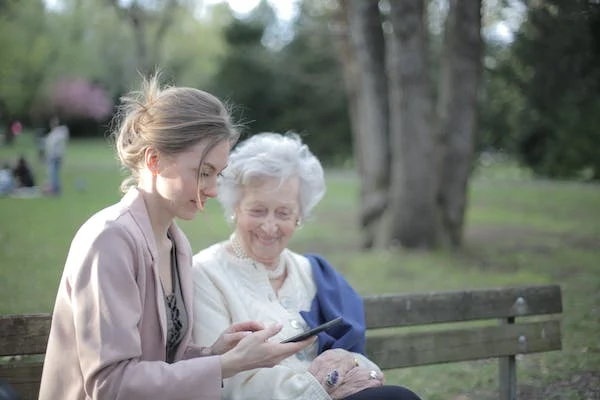Parents who have spent a lot of time, effort, and money on their children might experience a lot of emotional damage from their children’s ungratefulness. Parents may begin to doubt their own ability as caregivers and the value of their efforts, leading to emotions of disappointment, anger, and even guilt.
Adult children who are not grateful may act in ways that are dismissive, entitled, emotionally distant, or arrogant. They may be unable to appreciate their parents’ sacrifices or may minimise them, yet they continue to rely on them despite displaying little gratitude or reciprocity.
We have put together some effective ways to deal with your ungrateful adult children.
Be Accountable For Whatever Part You Play

Some unhealthy parent-child relationships are the child’s fault, but you must take responsibility for your actions. It’s possible that you’re adding fuel to a toxic relationship, even if you don’t realize it.
If you feel guilty in any way, attempt to make amends with your child by apologizing and suggesting a calm discussion of the situation to help you both move on.
Take an honest look at your actions by asking yourself the following questions:
- When parenting, did you ever cross the line?
- How comfortable were you with invading their space while growing up?
- Did you ever brush off their worries or cut off their emotional venting when they came to you for help?
- Has your child ever called you domineering or manipulative?
Answering “yes” to any of these questions may indicate that the situation is more nuanced than it initially looked, but it does not necessarily mean you are a toxic or abusive parent or that you are solely responsible for the breach in your relationship. However, identifying these issues and making amends is a good starting point.
Point Out Ungratefulness

It’s important to call attention to your adult child’s ungrateful behavior when you see or hear it.
Use specifics without coming off as rude. You should probably not tell them, “Stop being such a brat.”
To the contrary, you could try saying something along the lines of, “Complaining how you didn’t have enough presents as a child is ungrateful. Your dad and I went out of our way to get you what we could afford. That included working extra hours.”
Your child will learn what constitutes entitled behavior if you consistently point out instances that demonstrate an ungrateful attitude. Make sure the purpose of your comments is to enlighten and not to embarrass your child.
Remember, your child is only an adult and not yet a parent, so they might not understand the sacrifices you have made. Communicating with them could enable them to empathize and become grateful.
Establish Boundaries With Your Adult Child

By establishing acceptable boundaries with your child, you may make your interactions with them more positive.
Limiting your time together, avoiding particular topics, or making it clear that you’ll leave the room if your child insults, manipulates, or becomes hostile are all strategies that can help.
It’s probably best to keep visits short if you and your adult child have a history of blowing your stack during visits.
Say something like, “I’m not going to tolerate that.” if they disrespect you.
“I take my leave. Maybe we can talk later.”
Say, “I’d prefer not to talk about that,” if they bring up a topic you’d rather avoid.
“But we can move on to other topics. How is your new apartment?”
A parent’s desire for a close and intimate relationship with their child may need to be reevaluated. Sometimes, space is all that’s needed to keep the peace.
Boundaries could be what your child needs to start respecting you. When there are boundaries, it causes them to appreciate you more. This way, you wouldn’t be taken for granted.
Find Happiness In Yourself

Parents can find more happiness by focusing on their own areas of interest and developing their own skills. Independent of their adult children’s actions, parents can keep their sense of purpose and fulfilment by tending to their own well-being and finding joy in other things.
You don’t have to make the relationship you have with your child all that you have going on.
The confidence you acquire as a result of your increased independence is a major plus. Learn new skills, get busy with yourself, and have confidence in yourself and your ability.
The more you engage you are from having a life outside of your children, the more you will value yourself.
Your child would notice you have other things going on. They would begin to respect you and value the times when they were the center of your life.
When they realise that you have other things going on, they will regret taking you for granted and subconsciously strive to be the center of your attention once again.
Remember, people tend to value what is scarce.
Get Yourself A Safety Net

The mental and emotional toll of repeatedly being disregarded by your adult child can be significant.
It could hurt when you don’t matter to the child whom you sacrificed your resources and youth for.
Having dependable friends and family members who have your back and who understand your pain is crucial.
Tell a few close friends or family members who can help you out if something is wrong. Do not sob alone; share with a support group.
Share your planned visit with your child with a trusted friend or family member so they may check in with you afterwards. You might have a friend or family member act as a buffer between you and them the next time you encounter them.
It could come as a plus when you have someone in your support group who is going through the same or who has dealt with a similar situation. They can share their experience with you and soften your struggles.
Seek Professional Assistance

Seeking professional intervention from therapists or counsellors can offer a helpful and objective perspective when the connection between parents and adult children has become difficult or toxic.
The fundamental causes of ungratefulness in adult children can be addressed and uncovered through frank and open discussions with the children. A professional can help both parties navigate this.
Understanding and healing can occur when parents and adult children talk about their feelings and want to hear each other out.
Communication, conflict resolution, and the restoration of trust and mutual understanding are areas that can be revived from the expertise of a trained professional.
Conclusion
Understanding the root issues, reassessing expectations, and encouraging open communication are all crucial in dealing with ungrateful adult children. Parental connections can be repaired and rebuilt via the cultivation of gratitude, the establishment of boundaries, the seeking of expert assistance when needed, and the practice of self-care.
Let go of your expectations and open yourself up to unconditional love, and you’ll find not only personal growth but also a stronger bond between you and your child.
